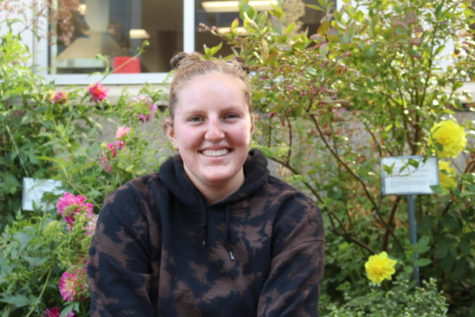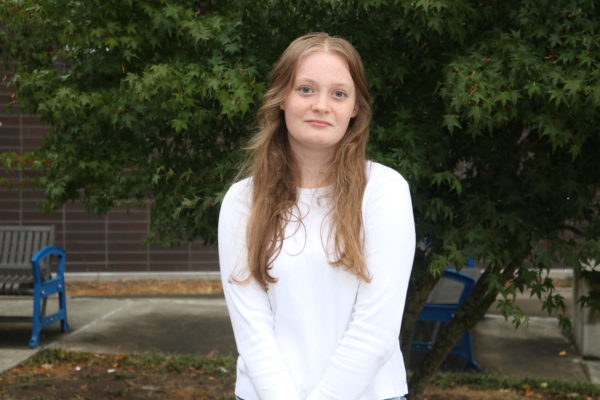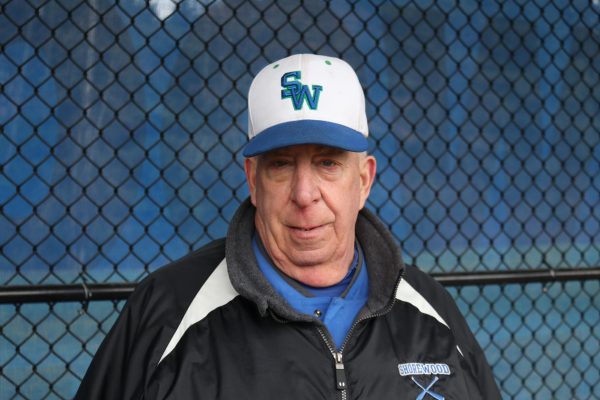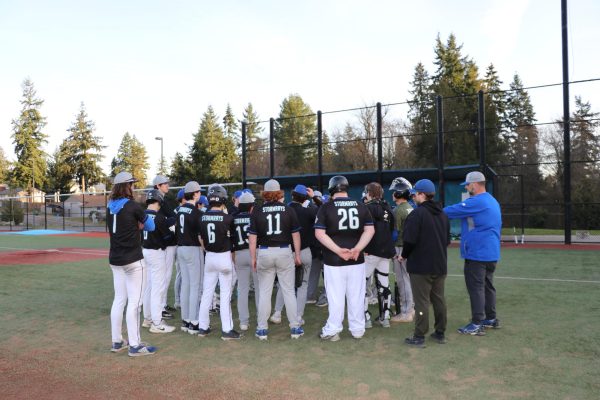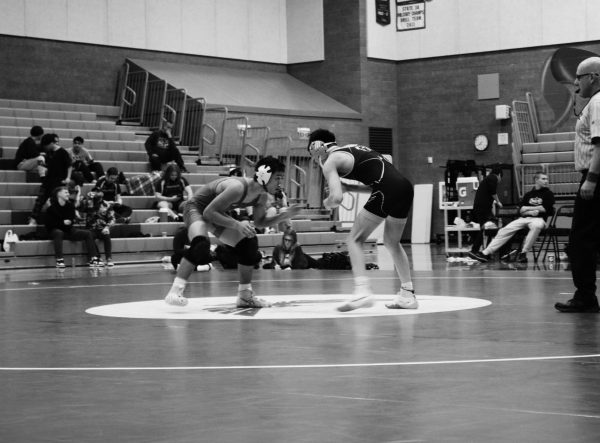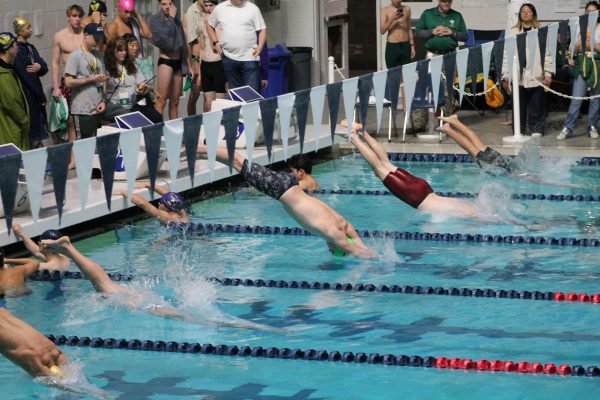The person beneath the player
The need for conversations about mental health for student athletes
April 5, 2022
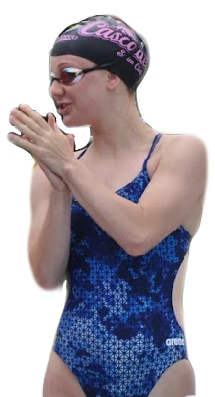
While many of us leave the school day with plans to see friends and do some homework, student athletes face a different reality. At least five days a week, sophomores Stacy Osaria and Reid Petschl along with junior Grace Lindberg are working hard playing sports. They enjoy it immensely, however sometimes they find it challenging to keep up with their lives outside of their sports.
Petschl, football and baseball player, finds it hard to balance schoolwork and sports. “You have to stay up, some nights until like 1 or 2 a.m. just trying to finish your homework assignments,” he said. This can be an overload for Petschl. “It (school and sports) fills up my head sometimes, where it’s all kept inside. That hurts my mental health a lot,” he said.
You’re held to these high standards and you don’t want to let anybody see you crack.
— Reid Petschl, 10
Lindberg also finds it hard to get schoolwork done but is able to find a balance. “It’s become a skill I’ve had to learn how to really get it [schoolwork] done in school.” she said. Lindberg, a swimmer, is happy to spend as much time as she does in the pool, even though it may mean being stressed about school. “During the week I don’t have time to do any other stuff. I think I’ve been lucky that swimming is something that I love,” she said.
Osoria, a volleyball player, also struggles with managing her time, specifically with trying to balance volleyball with her social life. “I’ll try and be super flexible and make plans, and then my coach will be like ‘oh I forgot to tell you guys you have a volleyball tournament this weekend,” she said. This has caused some of her friendships to weaken. “A lot of my friends will be like ‘you’re flaking’ and then they won’t invite me anymore,” she said. Osoria worries that volleyball will become her whole life. “If you let it, your social life will slowly become your sport and that’s even worse,” she said. All three athletes wish conversations about mental health were more common.
Even though Lindberg is comfortable talking to her friends about mental health, talking to her coaches can feel intimidating. “If I was really struggling mentally I think it would be less common for me to go to a teammate or a coach and more common to go to a close friend or a parent,” she said. She expressed that her coaches could be there for her mental health, “but it’s just not quite a norm yet.”
Petschl also wishes that it was more widely accepted for athletes to talk about their mental health. “I feel like it is very difficult, especially as an athlete, to put your feelings out there. “You’re held to these high standards and you don’t want to let anybody see you crack,” he said. Petschl believes that many athletes bury their feelings. “You can see your friend walking into school with a smile…they’re going through stuff and it’s really hard and they don’t talk about it at all,” he said.
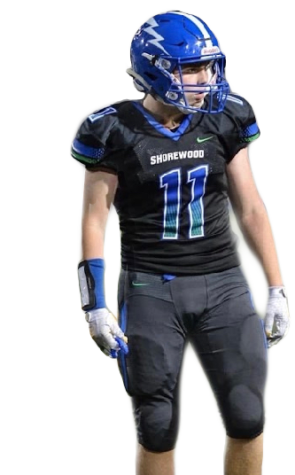
Lindberg thinks that open conversations about burnout and mental health are a great way for the stigma around mental health to end for athletes.“I think it would be good if we could say I’m really not feeling good, I’m feeling very burnt out, I need some help,” she said.
Osoria had a positive experience talking to her JV coach while playing for Shorewood, which made her feel valued. Osoria expressed she wasn’t having a good day at school and that might affect her play. “ [My coach] said ‘it’s good that you’re putting yourself first.’ I feel like that was really helpful.” Her club coaches have not at all been open to talking about mental health. “In club when I was having a bad day, like I was visibly upset, my
coaches would be like ‘you need to fix your attitude right now,’” she said. Petschl has also had a positive experience with Shorewood sports.
“You have this environment of everybody wanting to be so great and amazing and all this pressure where we all help each other become better,” he said. His club (Ford Sports Performance), however, has a different feel. “I feel like there’s more of a business than a team. You have to put up these numbers, you have to run this fast, you have to do this good, and it kinda took away from being on a team,” he said.
Lindberg’s club swim team, Cascade, has been a good environment for her. “They’re really great people to be surrounded with,” she said. Recently at a meet, Lindberg missed her time by half a second to qualify for a meet in Austin, Texas. “I was in the locker room crying,” she said. This had a negative impact on her mental health. “That was a really hard thing for me still, because this was kind of recent, I don’t feel fully redeemed from that. [Not making my time] definitely brought me down,” she said. Her teammates and coaches were a huge support for her, “Nobody was upset with me. They were upset for me, which made a huge difference,” she said.
Osoria has had a completely different experience. She faces pressure and negativity from her club coaches, parents, and club teammates. She said her mom once told her that she doesn’t want to go watch a losing team. Osoria has also had to deal with classmates not being able to see the person behind the player. “People would go up to me and they’d call me ‘oh Stace the ace’ and then when they would go watch my games they’d be like you didn’t play as good as you usually do,” she said. Lindberg and Petschl have also found it hard to separate person from player.
“I’m a swimmer. I say that to describe me. I do have other interests but [swimming] is such a big part of me,” Lindberg said. She wishes her times in the pool were more separated from who she is. “I can define myself being a swimmer but I’m not going to define myself by my accomplishments in the pool,” she said.
Petschl finds it hard to distinguish between student and athlete. “Sometimes people, or even myself, see myself as a football player other than a student that has friends that also plays football. I see myself as an athlete which is tough. I feel like other people always look at me as being a football player,” he said.
Conversations that acknowledge the lives and mental wellness of student athletes by coaches, parents, and teammates is needed in the world of sports. Osoria said: “You can’t just expect me to forget about my whole life to play volleyball.”

